Last instalment of our Quarantine Shorts, we hope we have kept you good company during these hard times. From AsinoVola’s newsroom and Concorto’s staff… vive le cinéma!
Negative Space – Max Porter + Ru Kuwahata
Seen by Elena Saltarelli
This sweet French short film analyzes the relationship between a father and his son through what they used to do together, namely packing the suitcase. The stop-motion animation retraces their orderly way to love each other, folding shirts and rolling up socks to save as much space as possible. This rite was repeated whenever the father was away on business, and the son packed the suitcase for him making the most of his advice. And that’s how, in front of the father’s coffin, all the love and the sorrow condense in a short, simple phrase: “Look at all that wasted space.”
Manivald – Chintis Lundgren
Seen by Carlotta Magistris
Manivald by the Estonian Chintis Lundgren is a delicate animation about the drama of love. The world childishly drawn by the director is peopled by evanescent anthropomorphic animals and it creates a contraposition with the story, an uncensored drama: a morbid relationship between a mother and his son, homosexuality, an emotional abuse followed by a love let-down. What we see is a short movie where the aesthetic is in harmony with the naïf point of view of the main character, a perspective which, with smart irony and Fellini-like references, emphasizes the sentimental value of the story.
Tracing Addai – Esther Niemeier
Seen by Vanessa Mangiavacca
Why should a young guy voluntarily go to Syria to fight against the Islamic State? This is the desperate and merciless question that Addai’s mother asks herself. In his early twenties, Addai decides to leave his country, Germany, to become a foreign fighter and fight for a distant cause of an opposite culture. Addai tries to find his own place in a society that does not belong to him, carrying out an ideal that is distant from his western roots.
Esther Niemeier uses a hybrid style where the depositions are mixed in a chameleonic animation. The lack of filmed material is thus cleverly filled with a technique that is unusual for this kind of documentary, but that works: the so-called rotoscoping. This way, every image becomes incredibly concrete, raw, yet fictitious. Niemeier and Addai’s mother, in perfect harmony, narrate in first person a complex phenomenon, which is still considered a taboo, but that involves our society. An intimate story told with extreme clarity that takes on an universal meaning, describing the drama of a lost generation, who desires to be called a hero.
Acid Rain – Tomasz Popakul
Seen by Elena Saltarelli
Acid Rain, animated short film by Polish director Tomek Popakul, describes how difficult it is to grow up and at the same time to fall in love with a person who is not the one for you. In this schizophrenic, enriched with ascending and lysergic tones, narrative we see the main character asking a stranger to go with her, embarking on a journey that will bring her close to drugs, degradation and violence.
It is easy, even too easy, not to know what you want during that delicate transition from adolescence to adulthood, and the consequence is ending up trapped in a vortex that we caused on our own, but that we do not know how to end before things get bad, very bad.
Flowers and Bottoms – Christos Massalas
Seen by Margherita Fontana
After having been awarded last year by the young jury for his Copa Loca, Christos Massalas comes back to Concorto as a Jury member with his Flowers and Bottoms (2016). This 6 minute short film is a surreal and sensual little gem, literally a blooming of flowers and bottoms. Through a
playful atmosphere, Massalas stages a romantic relationship mediated by the screen: Flowers and bottoms is actually a film-in-the-film watched by an anonymous character whose we see only the back of his head. Reflecting upon the esthetic nature of human relationships in post-medial age,
the director decomposes the gaze addressed to this unnamed gift thrown into the ether. At the border with video art.
Kukushka – Dina Velikovskaya
Seen by Silvia Alberti
We can expect many things from an animation, but we’re always amazed when a genre meant for a young audience echoes reflections and experiences of all. Kukushka is a bird travelling alone, chasing the sun. It suffers such a fascination that even though it can never reach it, it starts again every day. But what happens if you travel suddenly in two? The perspective changes, even if we do not notice it at the beginning. Whether it is the birth of a son, a casual encounter, the union with another being: the purpose of the journey changes. And who knows if the newcomer will be transformed into the new sun. A small moving jewel, directly from the cold Russia.
All my Happy Friends – Paul Howard Allen
Seen by Yorgos Kostianis
Have you ever had the impression that your social media persona seems veritably better than your actual, real-life self? In only two short minutes, Paul Howard Allen, hits the nail on the head on the negative impact of social media on mental wellbeing.
All my Happy Friends focuses on Claire, a young woman who becomes increasingly obsessed with her cyber image after being exposed to an endless stream of subtly self-promotional posts by her, allegedly, ever happy, ever healthy and ever successful friends.
Allen craftily dissects our generation’s newfound infatuation with social media, and our need to create and share misleadingly enhanced reflections of ourselves in order to ascertain our worth in society and in our social circles. A sort of psychological vicious circle where everyone is competing to be more euphoric, blissful and prosperous than the others when, in truth, they just keep bringing each other down, worshiping at the altar of vanity.
Gure Hormek (Our Walls) – Maria Elorza & Maider Fernandez
Seen by Elena Saltarelli
This 15-minutes-long short film, realized in a documentary style, highlights with rare sensibility the emotional personification of the living spaces. Homes, walls, cities assimilate the intimacy and transcend their objective function, turning into icons to which voice is given.The result is a modern and melancholy fado, in which the architectonic saudade is sung softly by a heterogeneous group of women, who share the idea that our walls pay tribute to those we love.
Bär (Bear) – Pascal Flörks
Visto da Margherita Fontana
A voiceover and old photographs, which slide like transparencies. In his short film Bär, Pascal Flörks chooses to mimic these essential means to tell the true story of his now elderly grandfather, a former paratrooper in the Nazi army. The traditional narrative is however subverted by the choice to represent the grandfather, in all the reconstructed archive materials, with the appearance of a bear. This alienating substitution tinges the tale with unexpected tones, making the filter of memory evident. The brutalities experienced during the war had left obvious traces, which undermine the normalcy of everyday situations. Like that gun, a war relic, which nevertheless continues to hurt, even in peacetime.
A Single Life – Marieke Blaauw, Joris Oprins, Job Roggeveen
Seen by Vanessa Mangiavacca
Simple and straightforward, as the music that accompanies it: the temporal ellipses follow each other in the ultra-short film created by the Dutch animation studio Job, Joris & Marieke. A mysterious vinyl falls at the door of the protagonist. It’s able to fulfil one of the greatest human primordial matters: travel through time. Who could resist the temptation to relive a memory or peek into the future, even if conscious of the ending? A rival of Marty McFly.
Teeth and Pills – Andrea Vinciguerra
Visto da Rael Montecucco
Surreal and colourful black comedy directed by the Italian Andrea Vinciguerra. A satirical and provocative portrait of an American middle-class family, featuring pills, bodybuilding, dolls, parties, and teeth being knocked out. Between the video of Black Hole Sun and Todd Solondz. A sharp little gem.
Greener Grass – Paul Briganti
Visto da Sofia Brugali
Described as a comedy of manners, Greener Grass is a surreal experience, whose seemingly linear development is, in fact, an alienating spiral.
Lisa and Jill seat on the bleachers and watch their sons playing on the football field, their frivolous conversations hiding their envy and insecurity behind the smiling mask of friendship. Their ambiguous behaviour is disclosed by the film’s theatricality, in which the characters exaggerate their act, supported by the misplaced use of cinematic elements (sound, framing).
A play in seven acts, whose (non)sense is found in the tragic peak of its ending.

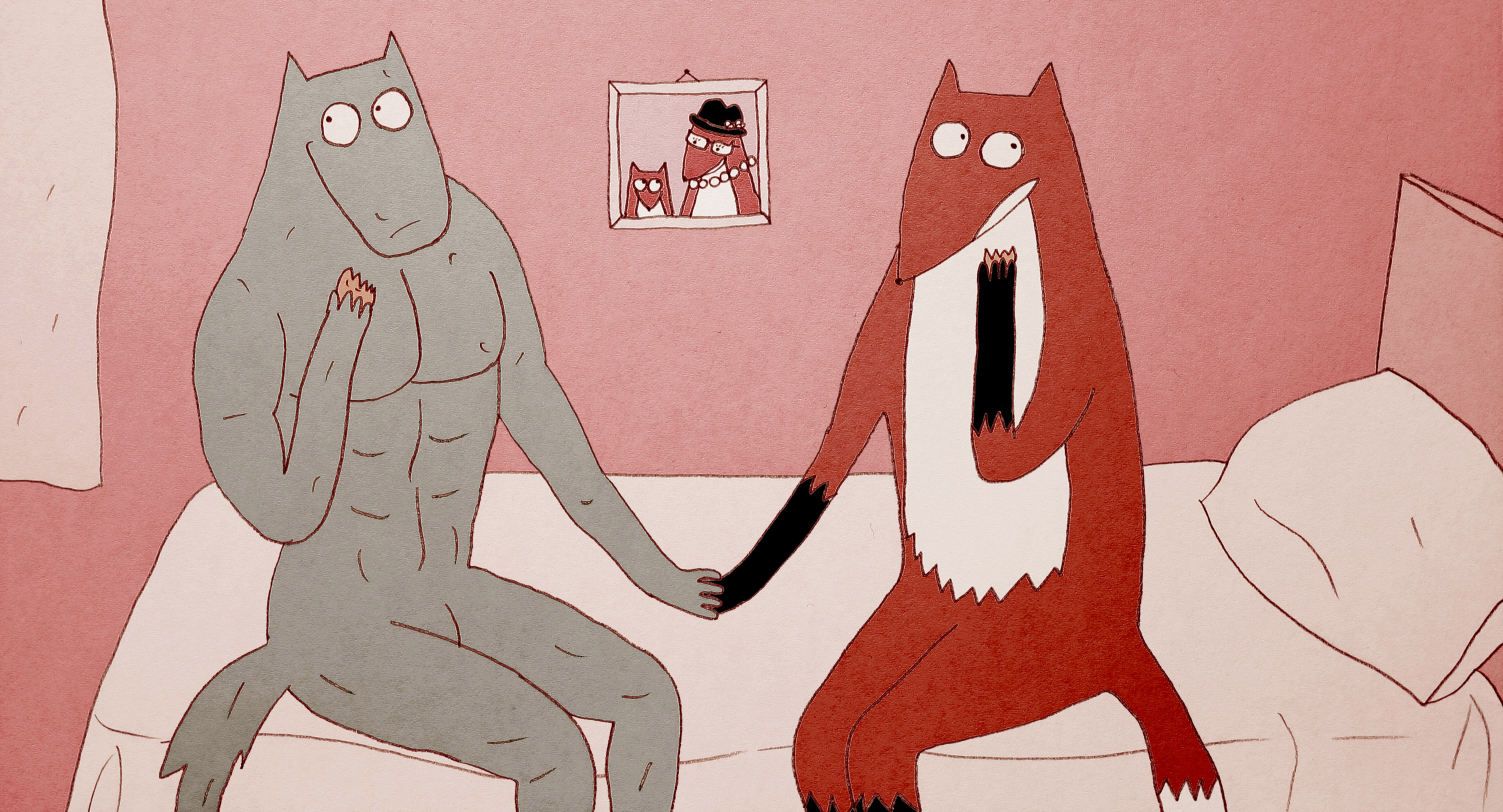
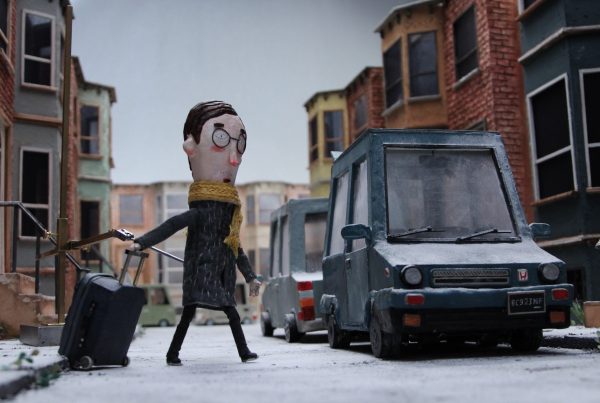
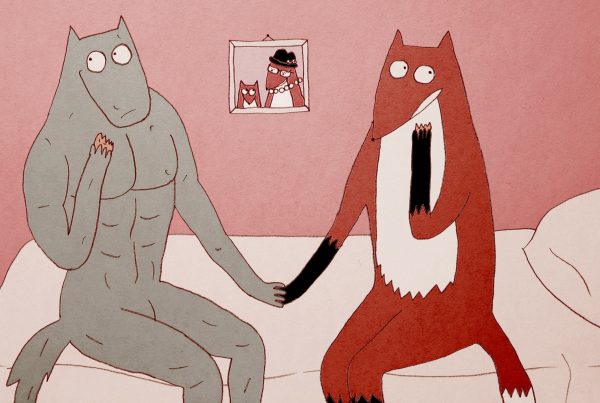
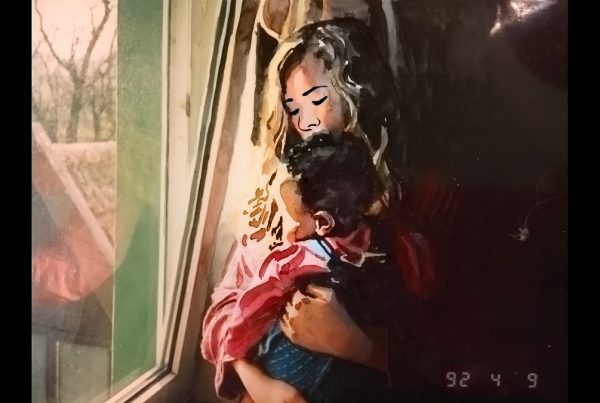
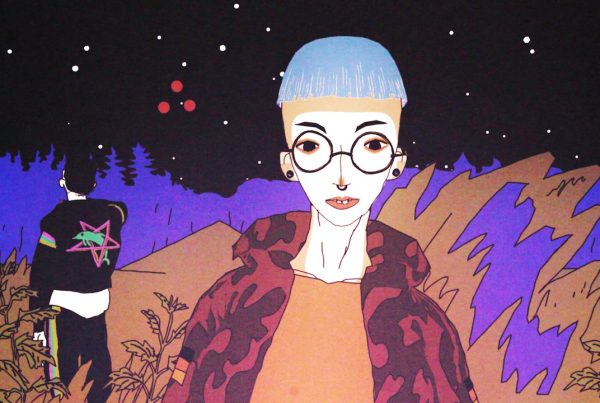

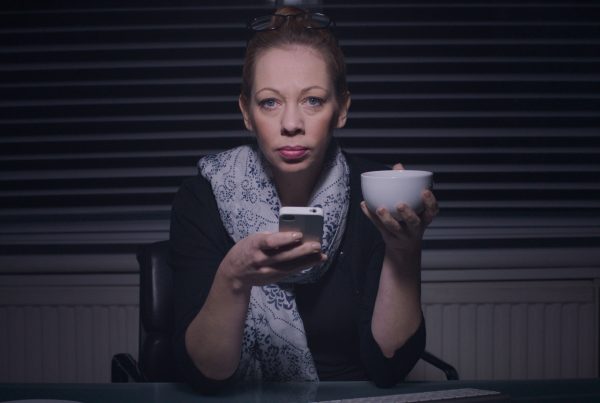
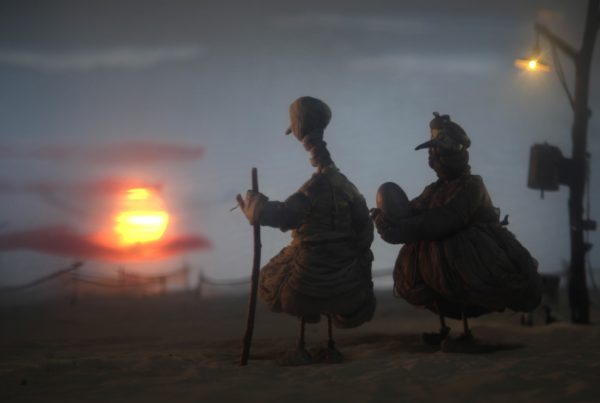
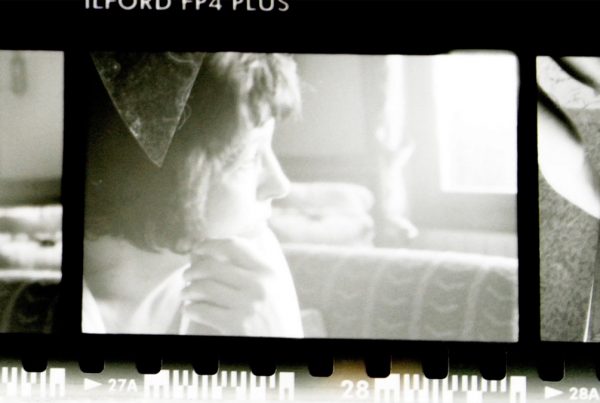
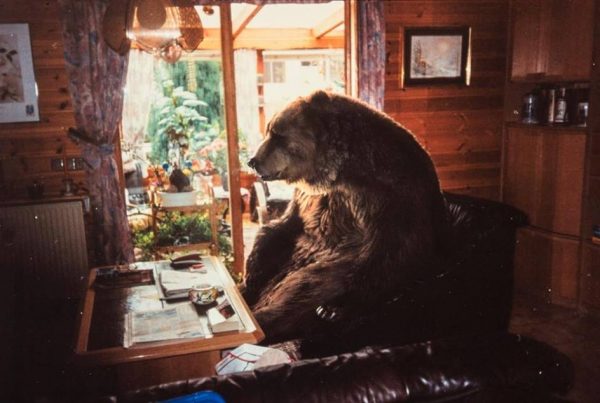
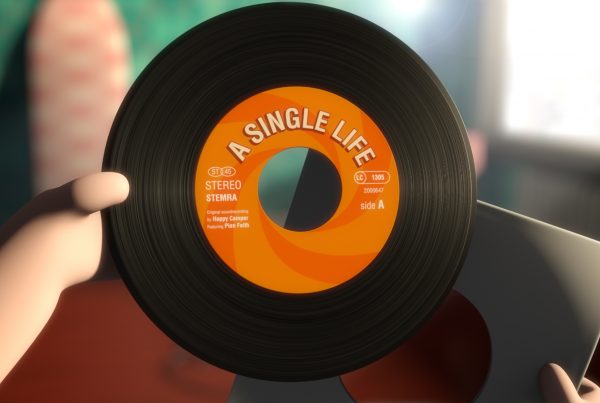
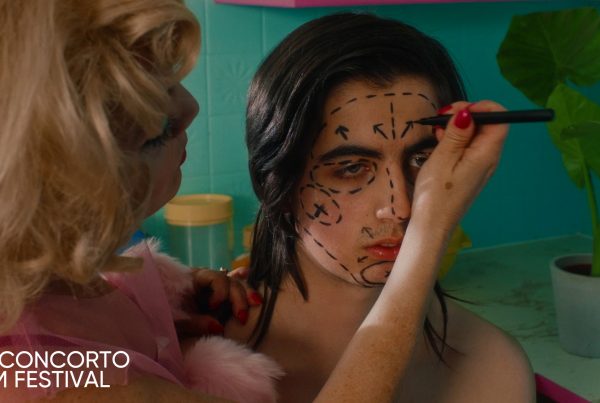
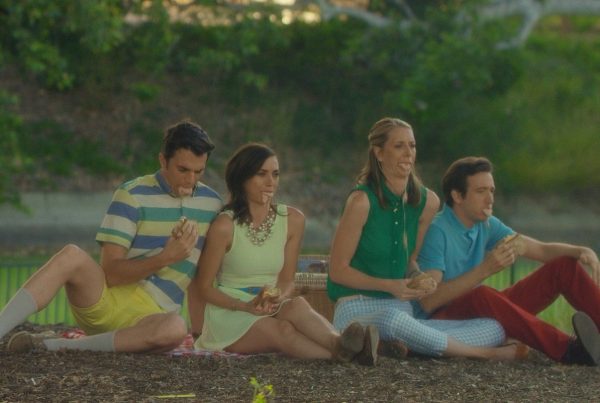
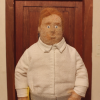
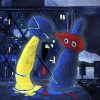

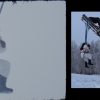


Commenti recenti